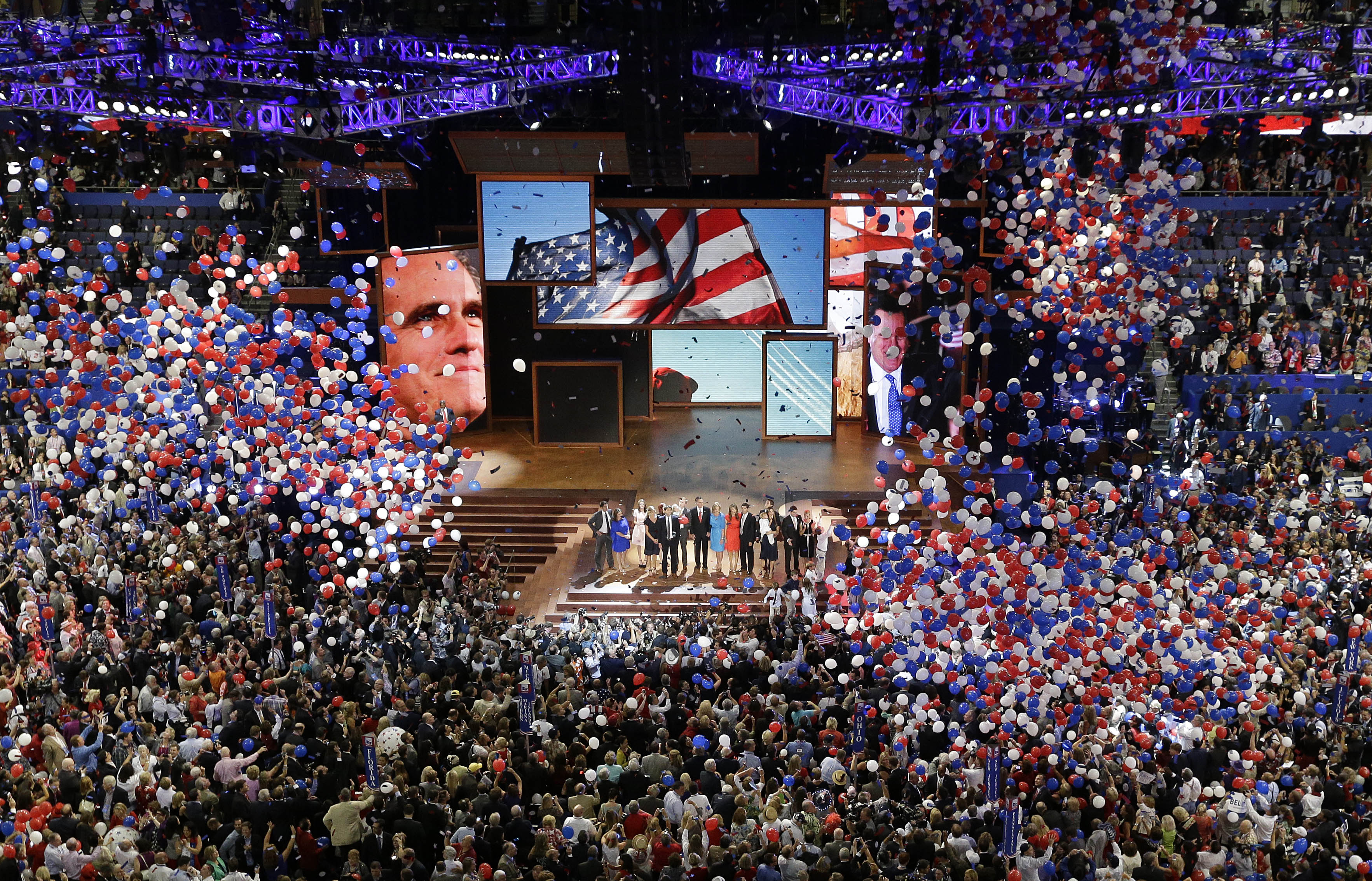Early on, the GOP assumed that Donald Trump was just playing at politics, and at best, he was a novelty or sideshow. It was not really until the run-up to Super Tuesday that Trump really came under direct attack.
And the prospect of a Trump nomination was driven home by his string of primary and caucus wins. Mitch McConnell advised senators who are up for election that they could distance themselves from the party nominee, if it’s Trump. And Paul Ryan has chided the candidate twice, and Massachusetts governor, Charlie Baker, has said not only would he not support Trump, but he wouldn’t even vote for him.
But how likely is an open or “brokered” convention? Some say there’s no such thing as a “brokered” convention, since there are no “brokers” anymore. But someone would have to “make the deal” to come up with an agreeable candidate.
For instance… in 1924, from Wikipedia:
the 1924 Democratic convention was deadlocked between William Gibbs McAdoo and Al Smith (who won the nomination four years later). After a record 103 ballots, the convention chose neither, making John W. Davis the candidate.
Let’s say Trump ends up with 1,000 delegates, Cruz has 840, and Rubio has 500 (including “super delegates“). If no one yields, no one will have the 1,237 needed. The delegates are “pledged” for the first ballot, but after that, anything could happen. If the factions refuse to negotiate, the party might choose someone else, such as Paul Ryan, to be the nominee.
The National Review thinks something like this might happen:
The race for the Republican nomination is going to the convention. It must sound strange to hear that — given that this perennial contingency never gets past political-nerd fan fiction. It certainly feels strange to write it. But that’s where we’re headed…
At the current trajectory, no one — not Trump, not Rubio, not Cruz — will secure the necessary delegates to win the nomination outright. Nor, given the calculus, does anyone have any incentive to drop out. The very Mexican standoff that has enabled Trump thus far is likely to trigger a convention-floor failsafe. . .
While some will cite McCain and Romney as instances where seemingly implacable opposition was quickly mollified, the resistance to Trump runs far broader and deeper than any front-runner before him. Never before has a favorite for the nomination faced well-funded challengers enjoying the overwhelming aggregate support of movement conservatives and party regulars who make up the broader delegation.
What happens in the voting booths will be mere political prologue, as the electoral universe shrinks to 2,472. Barring some under-the-radar delegate recruitment and selection effort, few of these individuals will have any particular loyalty to Donald Trump, creating a big opening for the remaining field. The ensuing political mergers and acquisitions will be complex and fascinating. Strange bedfellows will emerge. And all this because on the convention floor, stump speeches and messaging go out the window — at that point, it will all be about the art of the deal.
So, what do you think? Can Trump get the delegates he needs to win on the first ballot? Or will it be a free-for-all that might even re-nominate Romney?
Donate Now to Support Election Central
- Help defend independent journalism
- Directly support this website and our efforts
